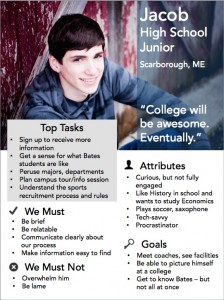Really thought-provoking NYT Op-Ed on happiness and its relationship to unhappiness — which, it suggests, is less polar than you may think.
The author is president of the American Enterprise Institute, a right-leaning think tank that I typically find pretty unpersuasive. But the piece is worth reading. One of his targets is social media — an easy target, and one that often frustrates me because going after it seems so predictable. And I find being preached at about the evils of Facebook so tiring. But I think he is fairly on point with this:
What do you post to Facebook? Pictures of yourself yelling at your kids, or having a hard time at work? No, you post smiling photos of a hiking trip with friends. You build a fake life — or at least an incomplete one — and share it. Furthermore, you consume almost exclusively the fake lives of your social media “friends.”

As much as we understand this to be the case, and treat it accordingly, there is the potential there for that to shape our outlook in problematic ways. I get it.
What I liked most about the post, though, was a mantra he spells out, and how I think it fits in with the ethos of usability: “Love people, use things.”
We just unveiled a library of 12 personas at Bates — fake people who represent real user groups, complete with bios, a quote, top tasks, goals, attributes, and preferences. Our own mantra has been: “If you want users to love your design, fall in love with your users.”
Helpful to remember that we build websites — things — for people to use. But it’s the people we love!